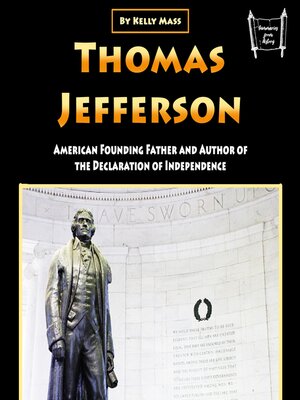Thomas Jefferson
audiobook (Unabridged) ∣ American Founding Father and Author of the Declaration of Independence
By Kelly Mass

Sign up to save your library
With an OverDrive account, you can save your favorite libraries for at-a-glance information about availability. Find out more about OverDrive accounts.
Find this title in Libby, the library reading app by OverDrive.



Search for a digital library with this title
Title found at these libraries:
| Library Name | Distance |
|---|---|
| Loading... |
This audiobook is narrated by a digital voice.
The rolling hills of Albemarle County, Virginia stretched endlessly beyond the windows of Shadwell plantation as young Thomas Jefferson bent over his books in the spring of 1757, his fourteen-year-old mind already grappling with ideas that would one day reshape the world. Born on April 13, 1743, into the Virginia planter aristocracy, Jefferson entered a society built on contradictions that would haunt him throughout his life: a world that celebrated liberty while depending on slavery, that proclaimed equality while maintaining rigid social hierarchies, that embraced Enlightenment ideals while preserving traditional privileges. The death of his father Peter Jefferson that year left young Thomas with vast landholdings, substantial wealth, and the independence of thought that would enable him to challenge the very foundations of the colonial order into which he had been born.
The educational foundation that shaped Jefferson's revolutionary thinking began in the classical tradition of Virginia gentlemen but expanded far beyond conventional boundaries through his voracious reading and intellectual curiosity. His early tutor, Reverend William Douglas, introduced him to Latin, Greek, and French, while his later studies with Reverend James Maury exposed him to mathematics, natural philosophy, and the broader intellectual currents of the Enlightenment that were transforming European thought. The emphasis on classical learning that characterized colonial education provided Jefferson with models of republican virtue and civic responsibility drawn from ancient Greece and Rome, while his exposure to contemporary European philosophy introduced him to radical ideas about natural rights, popular sovereignty, and the social contract that would later inform his political theory.







